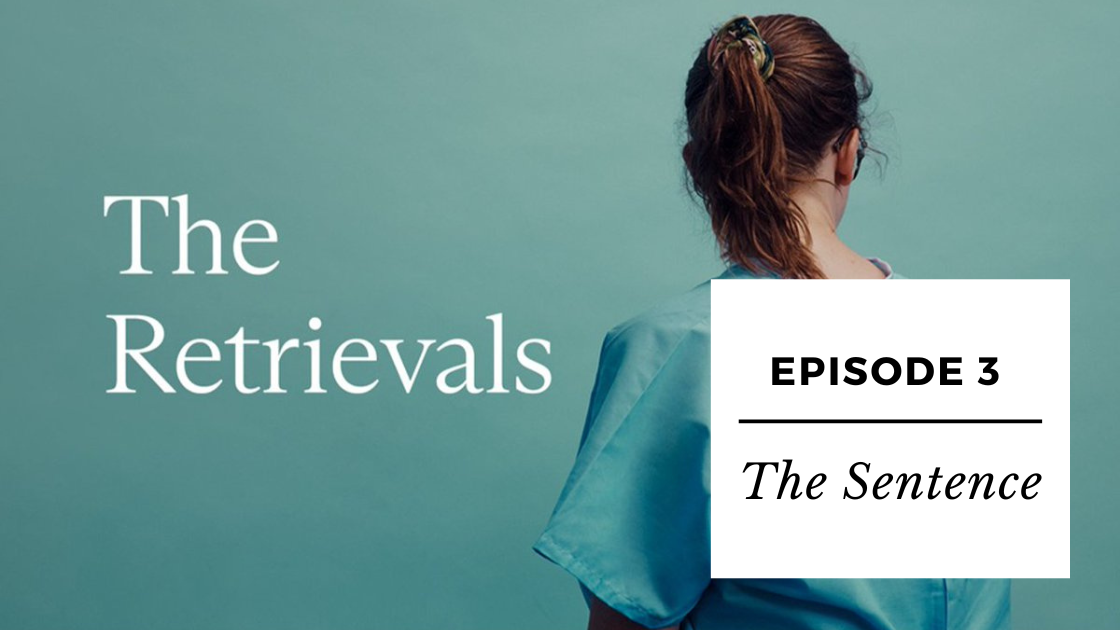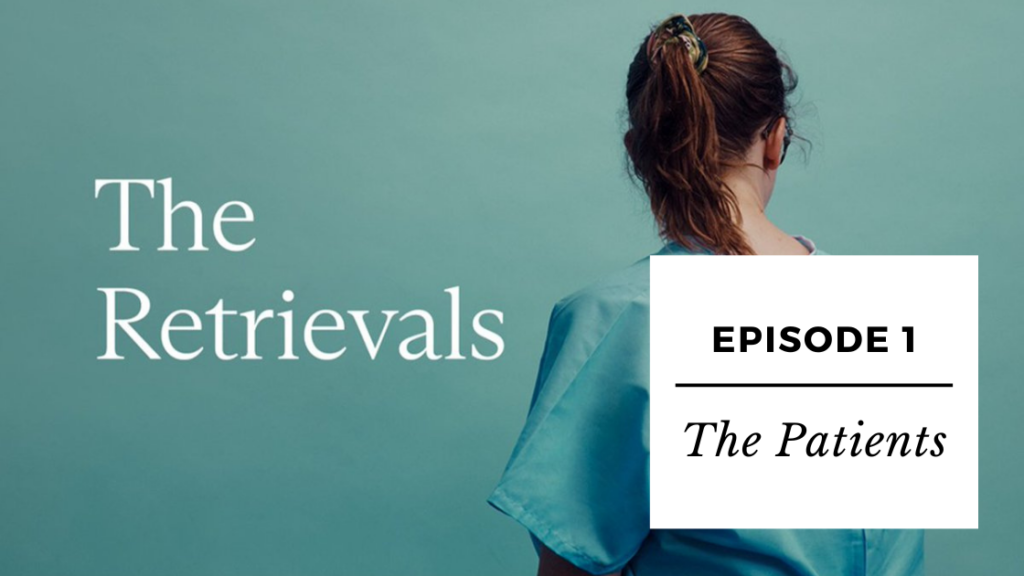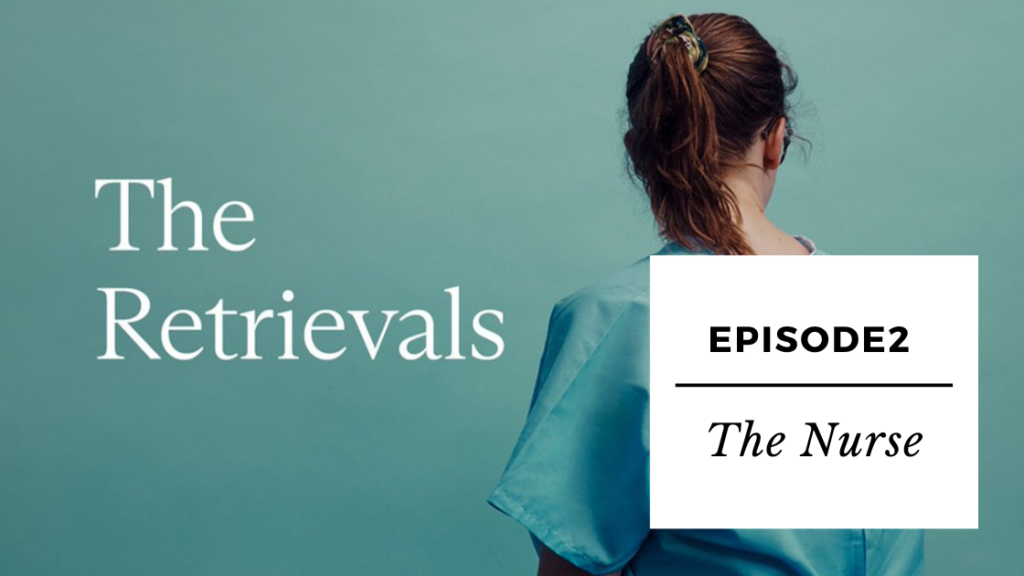
Welcome back to my analysis of The Retrievals – a podcast about women’s pain from This American Life and The New York Times.
The podcast follows the case of women treated at Yale Reproductive Endocrinology and Infertility Clinic where a nurse stole fentanyl meant to sedate patients.
The series explores women’s pain, opioids & ethical care.
I’m an anesthesiologist (sedation expert), an ethicist, and a woman. I’m sharing my reflections on every episode of The Retrievals.
If you missed my analysis of Episodes 1 and 2, you can read them here:


Spoiler Alert: This post discusses Episode 3 of The Retrievals.
If you haven’t listened to Episode 3 yet (released on July 13, 2023), listen here. (And here’s an auto-generated transcript.)
Last week, we learned about the nurse who stole and used patients’ fentanyl, Donna Monticone.
Today, we learn about her sentencing.
Addiction and Justice
Several patients working in addiction and mental health services struggle with balancing justice for the victims and treatment for the perpetrator. These patients recognize that addiction is complicated and don’t rely solely on blaming the person navigating personal crises and having easy access to fentanyl.
What would justice – restorative justice – look like for patients?
Unfortunately, sentencing is not about what will be acceptable to patients. It’s about the judge’s decision overall.
Extraordinary Family Circumstances
“Again, this isn’t a trial, Donna has entered a guilty plea. This is a sentencing hearing… Donna faces a maximum sentence of just over five years in prison. Attorney Near is here to argue that down to as little as possible. The thrust of her argument is Donna’s “extraordinary family circumstances.”
–Susan Burton
During the hearing, the judge sees this as a particularly challenging case. Donna is a parent to three children, and her ex-husband is characterized as potentially harmful to the kids if he were to get full custody.
If justice for victims leads to injustice for Donna’s children, is the system just?
It’s also particularly hard for infertility patients, desperate to become mothers, to watch a woman’s situation be prioritized over their suffering because she already has children.
Also an IVF Patient
During the sentencing hearing, victims discovered that Donna had been an IVF patient too. Donna had gone through egg retrieval – although with the benefit of proper sedation.
Donna had been a patient just like the victims. She stole their medications and made them suffer. She administered drugs herself to them that she knew were saline.
“She’s an IVF patient too. Are you kidding me?… You know the fact that she was an IVFpatient herself. I like I had to Etch A Sketch my head, I was in a kind of profound shock. It was literally like a punch to the face, a punch to the gut.
-Leah, a patient attending the hearing
How could she both experience the vulnerability of being a patient and betray people going through the same experience?
Yet, her statement to the judge focused on her children and how she had failed her children. Victims didn’t hear remorse for the severe impact her behavior had on patients.
Four Weekends in Jail
The sentence Judge Janet Hall ultimately hands down?
Donna Monticone was ordered to “serve three years of supervised release, four weekends of incarceration, and three months of home confinement.”
These four weekends in prison would be timed while her children were with their father. She will be released on time to resume her parenting duties.
For many patients, this felt like a very light sentence compared to their pain.
But what sentence would have felt just to the patients?
“Would you want her to suffer like you suffered [egg retrieval without sedation]?
And I dead face said that I would never want someone to go through what I went through. I don’t care if she’s the reason why it happened. I would never wish this on her.”
– Angela, patient and public defender
White Motherhood
Donna Monticone is not the first woman to use her white motherhood as a shield against incarceration. Recently, Theranos founder Elizabeth Holmes used her status as a mother to stay out of jail for a prolonged period. But this reasonable action – keeping parents out of jail to avoid harming their children, is not a benefit many women get.
Incarceration separates hundreds of thousands of parents from their children. For example, 58% of all women in U.S. prisons are mothers. According to the Prison Policy Initiative, 80% of the women who will go to jail are mothers. Fifty-five thousand pregnant women will begin their jail and/or prison time. Many are stuck in jail because they can’t afford bail. Most women are also primary caregivers for their children, leaving their kids with uncertain and unstable care.
If, as a society, we deeply cared about the safety and rearing of children by their parents, we would stop sending so many Black fathers to jail.
Towards Abolition
This episode offers opportunities to reflect on our justice system. I understand the victim’s dissatisfaction about how little time Donna would spend in prison. In our current justice system, we have been conditioned to equate justice to incarceration.
But Donna going to jail longer doesn’t really help anyone. It wouldn’t allow her to recover from her substance use disorder. It wouldn’t help her kids, who need raising. Donna going to jail longer wouldn’t hold Yale any more accountable. It wouldn’t take away the victim’s trauma. It wouldn’t secure opioids more effectively. It wouldn’t improve patient safety.
Sending people to jail does nothing to restore our society’s safety.
Everyone wants to be safe. But creating safety demands so much more than tried and failed reforms—it demands abolition. And as Derecka Purnell writes, abolition is an invitation into finding new answers to the problem of harm and into building new ways to prevent harm in the first place.
-Reina Sultan and Micah Herskind in “What is Abolition and Why Do We Need It?”
What I’m listening for in upcoming episodes
Hearing about the fentanyl supply and how easy it was for Donna to steal so much shows a failed system in the clinic.
As an anesthesiologist, I understand we need effective systems to prevent and deter drug diversion.
Stay tuned for Episode 4!
Thanks for reading!
Episode 4 (expected on July 27, 2023) will address Yale’s role in a poorly monitored fentanyl supply and outrageous patient safety problems.
Stay tuned for my analysis of the last two episodes of The Retrievals.
Alyssa Burgart, MD, MA is co-editor of BioethicsToday and a clinical associate professor at Stanford University. She also writes at Poppies & Propofol.